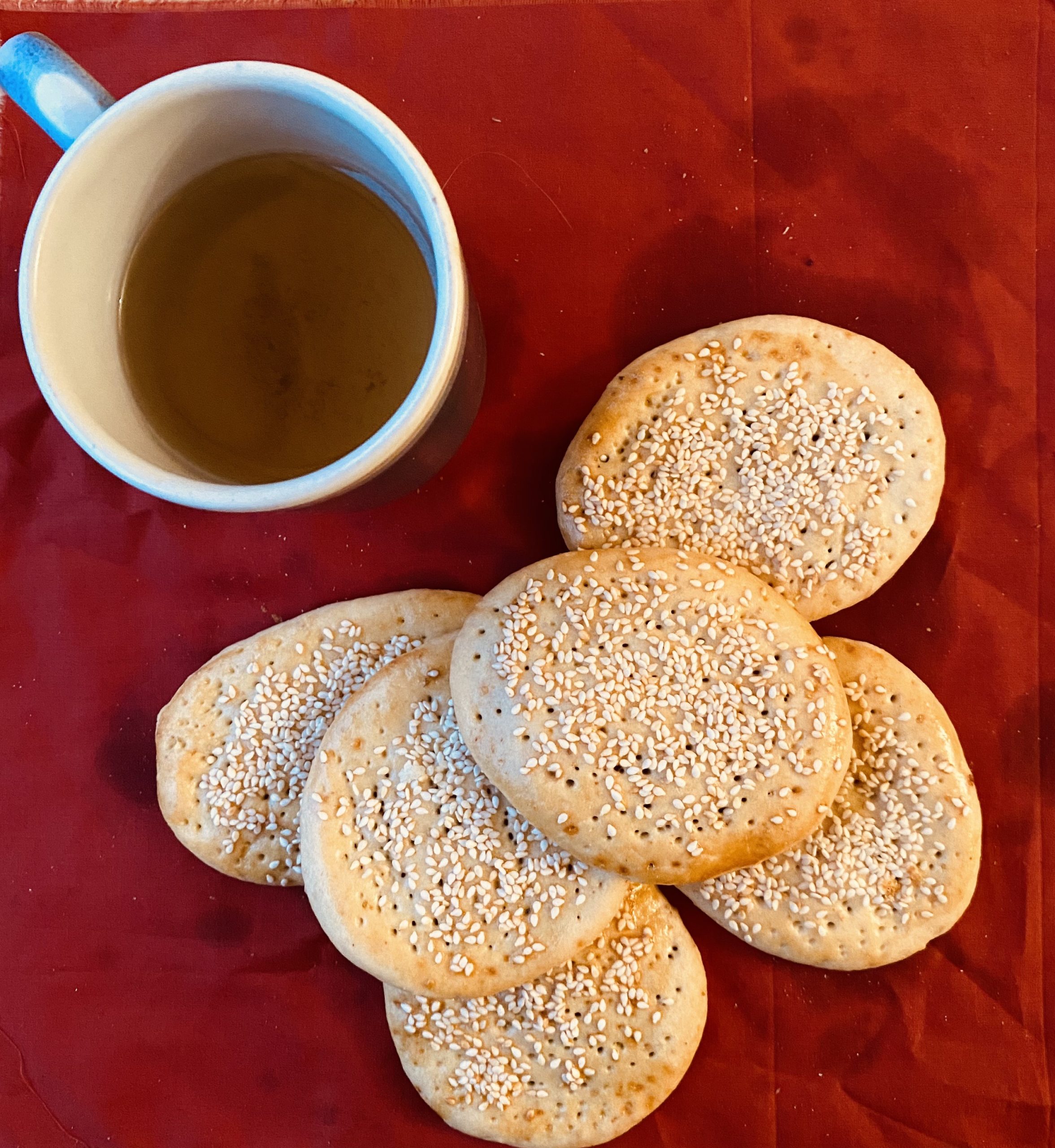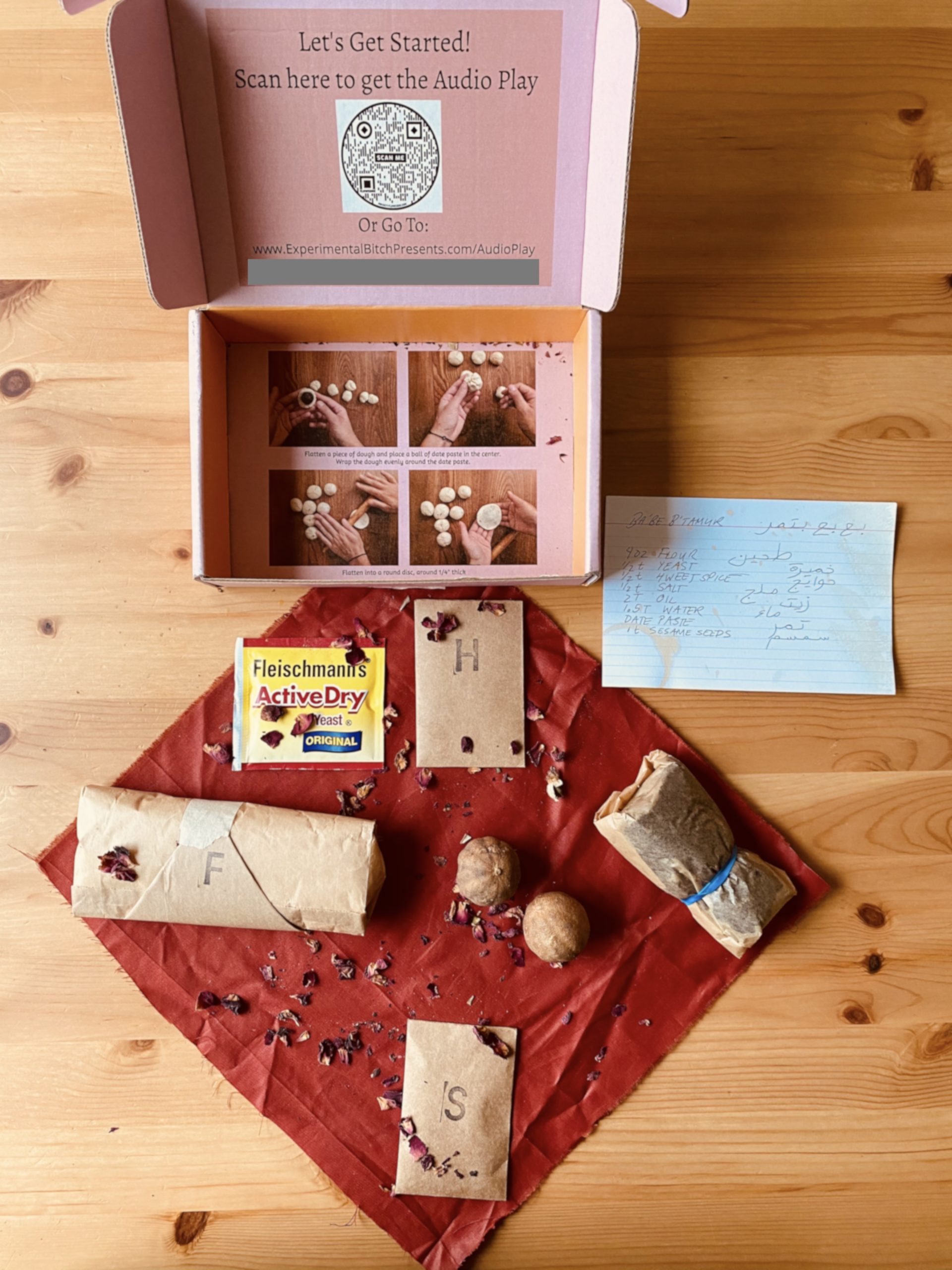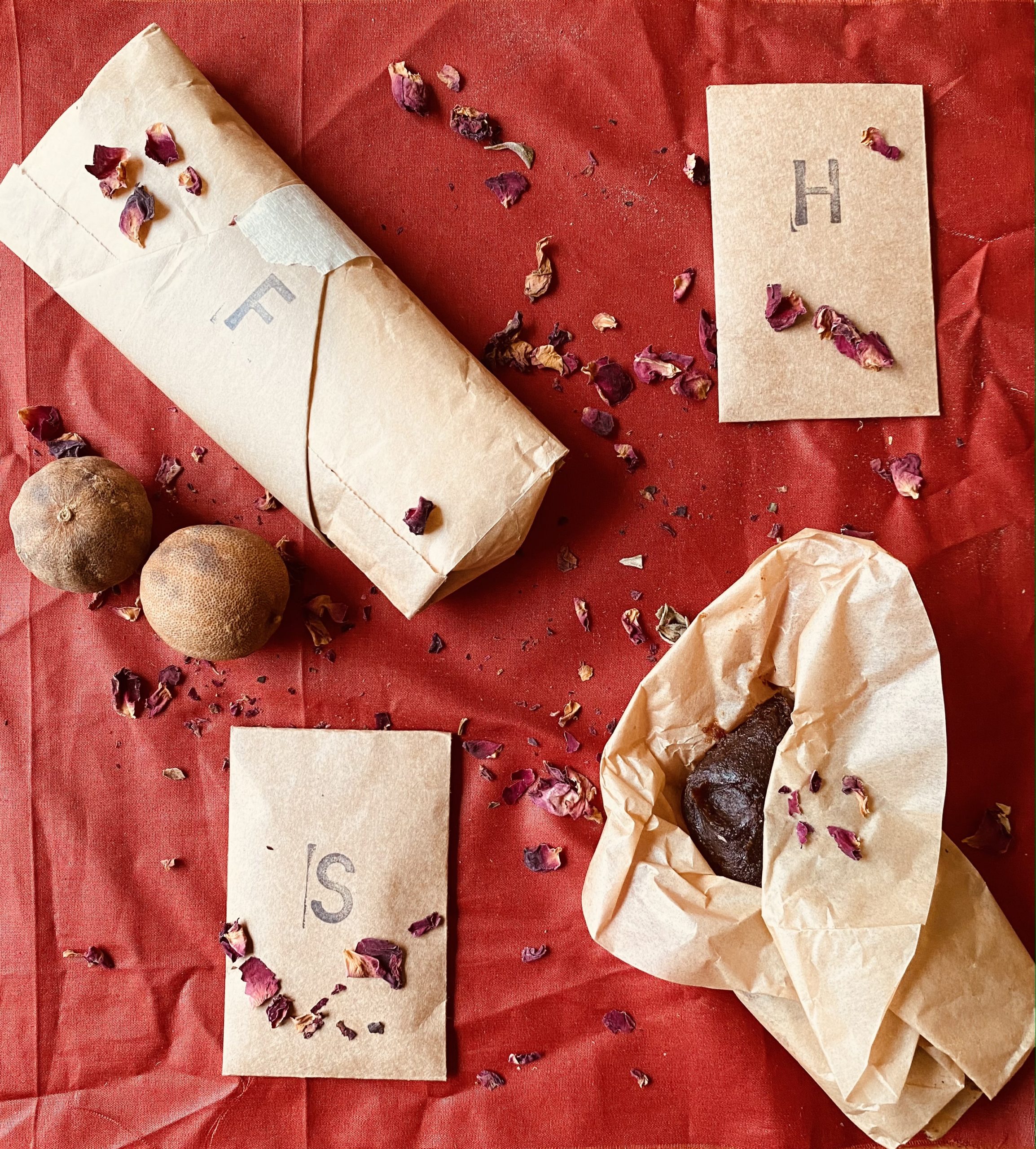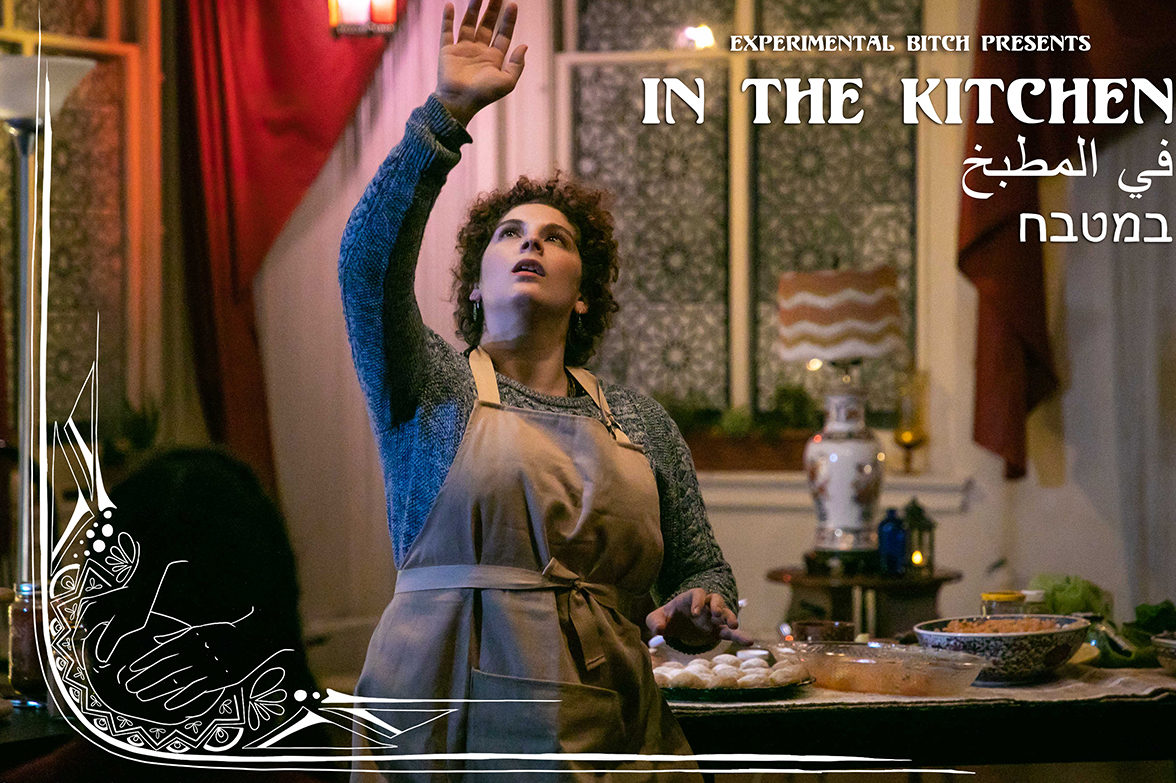My grandmother, my Nonna Nuccia, only knew how to say three things in English: I love you. Thank you. And, most memorably, Have you tea?
Only on my last visit to Rome before she died did I finally know enough Arabic and Italian to scrap together a conversation with her, but her dementia had already gotten to a point where she no longer knew who I was.
It’s been three years since I’ve sat down for tea with Nuccia. That was until last weekend when she came to me while I was baking along to creator/writer/performer Hannah Aliza Goldman’s audio play, In the Kitchen. Okay, so she didn’t physically come to me, but I felt her soul settle into my hands as I kneaded the dough, rolled the date paste, and sprinkled each biscuit with sesame seeds.

When Goldman’s one-person show exploring cross-generational Arab-Jewish womanhood was canceled this past March due to the pandemic, she worked with director/deviser Coral Cohen, Annabel Rabiyah of The Awafi Kitchen, Experimental Bitch Presents (the producing organization), and others to re-envision her piece. What emerged was an audio play, a mail-order recipe box, a musical soundscape, a meditation, and a timeless story that reclaims Arab-Jewish identity. It’s a play you can experience without being on Zoom, without having to even look at a screen.
Goldman first found inspiration for this piece after coming back from a trip to her grandparents’ homeland of Morocco. “The trip was so overwhelming,” she says. “Magical and wonderful and tragic and difficult.” To help her process the trip, she sought out other Arab Jewish women to share stories of their ancestral homelands. She interviewed them and found solidarity in their stories.
Many of their stories and voices are featured throughout In the Kitchen, creating a tapestry that extends across North Africa and into Western Asia. “It was really important to me to get broad perspectives from across the Arab world,” Goldman tells me. “To connect with each other and share our stories. When we come together and share our pain, our joy, when we realize we’re not isolated in our experiences of cultural theft and trauma, we gain strength in community.”
From the very beginning of In the Kitchen, with Goldman’s soulful singing of “Asalam,” a welcome song of peace, we are transported to a new place far beyond the spatial limitations of our kitchens. Goldman learned this muwwal (a slow vocal improvisation that precedes a song) from Laura Lassy Townsend, a Moroccan musician and singer. The lyrics calm us, “Hello to my friends, the ones who are near and the ones who are far away.” We can feel Goldman settling herself into our kitchen, reminding us we are not alone even in this time of sheltering in place.
While listening to Goldman’s stories, participants are meant to prepare a recipe with the provided ingredients for a full sensory experience. Annabel Rabiyah of Awafi Kitchen was in charge of deciding on the recipe and creating the boxes. Amidst COVID-19 uncertainty, she opted for a baked good, trusting the baking process to kill off any germs and keep audience members safe. The artistic team also liked the idea of giving the audience time while the biscuits baked to digest the content of the piece, “a kind of productive rest,” Goldman says. Rabiyah ultimately chose ba’be’ b’tamur, a date-filled biscuit, because of its prominence in Iraqi Jewish cuisine and because it holds special significance in her family.

Goldman, Rabiyah, and the whole team truly embraced the chaotic confinements of our new era, using this innovative art form to transform each audience member’s kitchen into a magical space of storytelling, music, and food. “I hope that the piece opens up how people think about their kitchens, and how they interact with that space,” Goldman says.
Interact we certainly do. Goldman takes us on a journey of the senses — taking in the colors and textures of each ingredient from the recipe box, smelling the spice blend, hweej, and baking aromas coming from the oven, kneading the dough with our hands, listening to her tell us stories, sing us songs, and, of course, enjoying a cup of lime tea and ba’be’ b’tamur biscuits. “I wanted the audience to have a full-body, sensory experience, to feel what couldn’t be easily explained,” she says.

Perhaps the most impactful moment for me, being a half-Ashkenazi half-Mizrahi woman like Goldman, was when she let us into her processing about her own identity and how she has grappled with how the world sees her versus how she sees herself. “I have light skin, light eyes,” she tells us while the biscuits are baking. “No one can really guess that I’m Moroccan just by looking at me, which makes the separation much more real. I guess it’s what makes me a bit uncomfortable about making this work and claiming Moroccan identity is that it’s a privilege to be able to claim it because it’s something I can so easily hide.”
It becomes clear in listening to her voice that her questions, her healing, her grappling, and her honesty are what make her the right person to create this piece, to let us see the cracks within ourselves without rushing to cover them up. “I don’t think I’ll ever feel completely at peace with who I am,” she goes on to tell me. “I’ve found that for so many Mizrahi people, this feeling of disconnection and loss is actually something that all of us can relate to. I created this piece to fill the empty space, to travel the distance when I didn’t have a map. It’s part of my healing process.”
In the Kitchen ultimately invites us to sit with the hard questions of our past histories and present identities. It asks us to embrace the parts of us that society has asked us to repress. It asks us to create our own nourishment, to inhale, to exhale, to digest all that our ancestors have to tell us bite by bite.
In the Kitchen, presented by Experimental Bitch Presents, added a final holiday sale. You can order your recipe box here for a December delivery.



